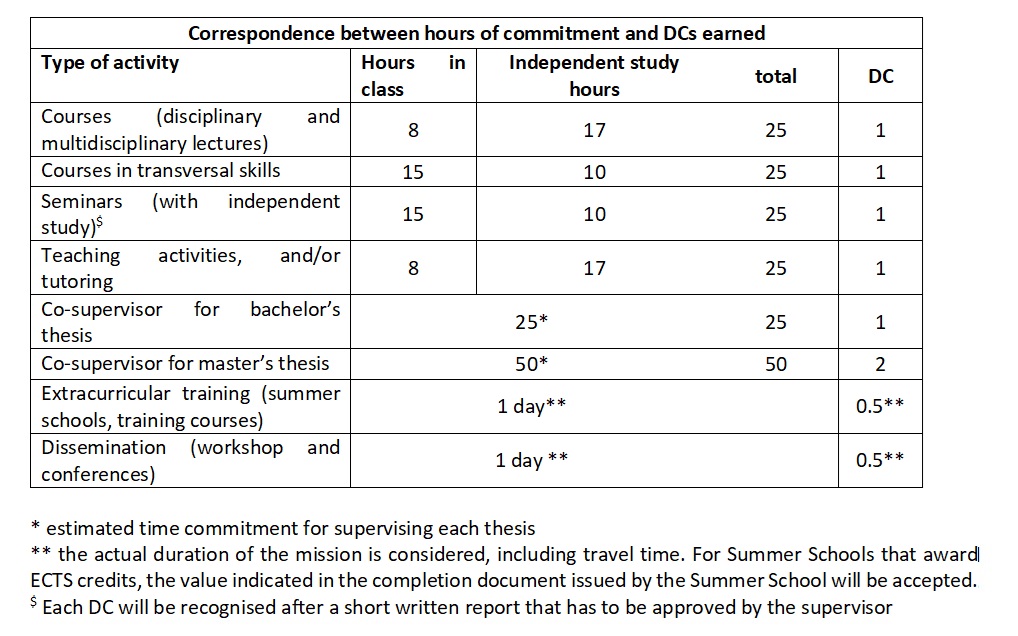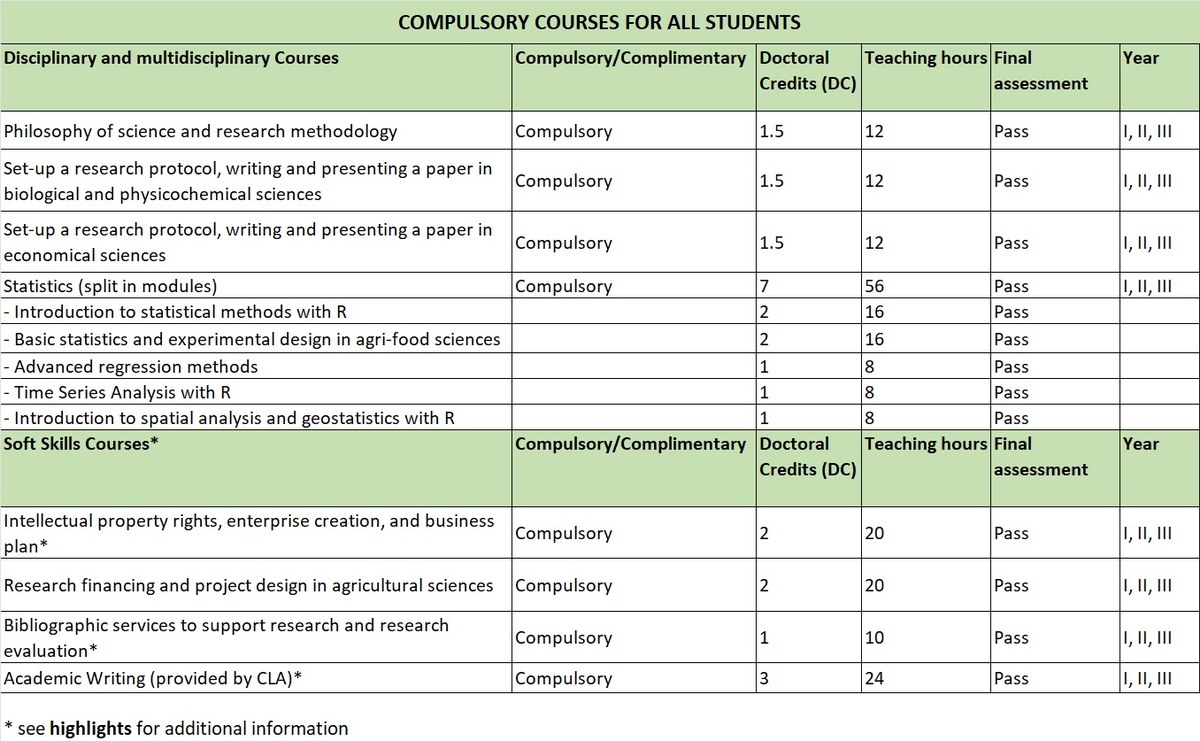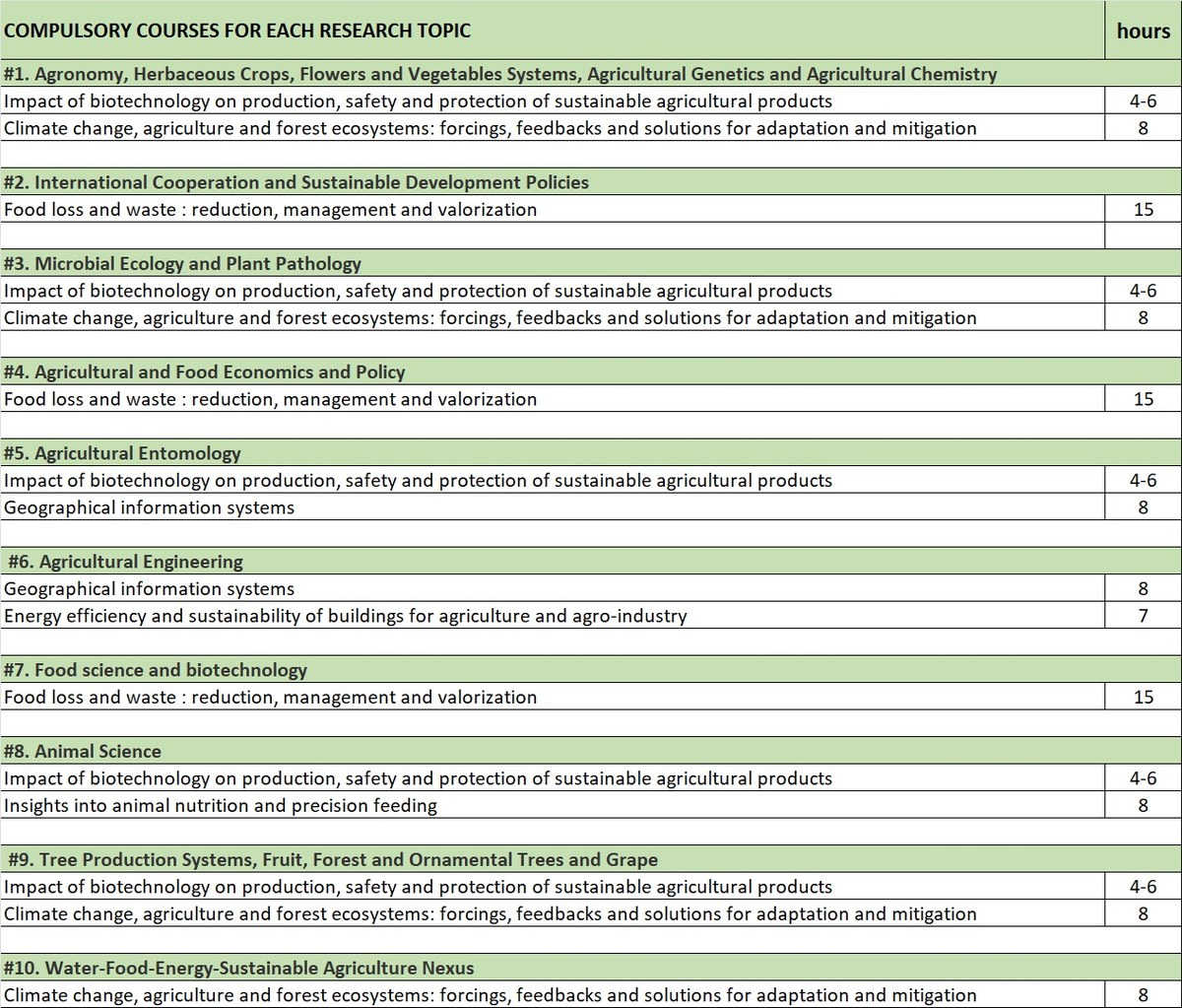TRAINING ACTIVITIES- 40th CYCLE

Doctoral Credits: An Overview
Throughout the thee-year PhD career, each student will have to allocate 180 Doctoral credits (DCs) across research activities, training and teaching courses. The DCs measure the workload required of a Ph.D. student for these activities to complete their doctoral degree. Ph.D. students must earn at least 60 DCs each year, equating to 1,500 hours of activity, with each DC representing 25 hours of commitment. For training and teaching activities, one DC is equivalent to one credit in the European Credit Transfer System (ECTS).

The teaching and training activities will follow a structured distribution to enhance both soft and hard skills, equipping students with a valuable toolkit for their academic or industrial careers. These activities will be composed of compulsory courses and elective courses, seminars, summer schools and initiatives of equal values.

The program sets a recommended number of Doctoral Credits (DCs) that Ph.D. students should earn each year in training and teaching activities to ensure a balanced workload alongside research. By the end of the first year, students are expected to have acquired 16 DCs. By the end of the second year, they should accumulate an additional 12 DCs, bringing the total to 28 DCs. In the third year, students are expected to earn a further 8 DCs, reaching the total number of required DCs. If a student falls short of the expected annual DCs, the shortfall can be carried over to the following year.

The number of DCs assigned to curricular training activities is calculated by adding the lecture hours to the estimated time for independent study.

Above is the list of compulsory courses that every PhD student must attend during their three-year program.

Each research topic has compulsory courses that each PhD student linked to those research area must attend
If you have any questions regarding the teaching programme, please contact Prof. Francesco Spinelli at francesco.spinelli3@unibo.it
Courses
27 FEBRUARY 2026
Courses
PublishedSet-up a research protocol, writing and presenting a paper in biological and physicochemical science - Lesson 1
02 MARCH 2026
Courses
PublishedSet-up a research protocol, writing and presenting a paper in biological and physicochemical science - Lesson 2
03 MARCH 2026
Courses
PublishedIntroduction to statistical methods with R - Lesson 5
05 MARCH 2026
Courses
PublishedIntroduction to statistical methods with R - Lesson 6
05 MARCH 2026
Courses
PublishedTime Series Analysis with R - Lesson 1
06 MARCH 2026
Courses
PublishedSet-up a research protocol, writing and presenting a paper in biological and physicochemical science - Lesson 3
10 MARCH 2026
Courses
PublishedTime Series Analysis with R - Lesson 2
12 MARCH 2026
Courses
PublishedTime Series Analysis with R - Lesson 3
13 MARCH 2026
Courses
PublishedSet-up a research protocol, writing and presenting a paper in biological and physicochemical science - Lesson 4
29 APRIL 2026
Courses
PublishedAdvanced regression methods - Lesson 1
29 APRIL 2026
Courses
PublishedAdvanced regression methods - Lesson 1
08 MAY 2026
Courses
PublishedAdvanced regression methods - Lesson 2
11 MAY 2026
Courses
PublishedSet-up a research protocol, writing and presenting a paper in economical sciences- Lesson1
12 MAY 2026
Courses
PublishedAdvanced regression methods - Lesson 3
13 MAY 2026
Courses
Published